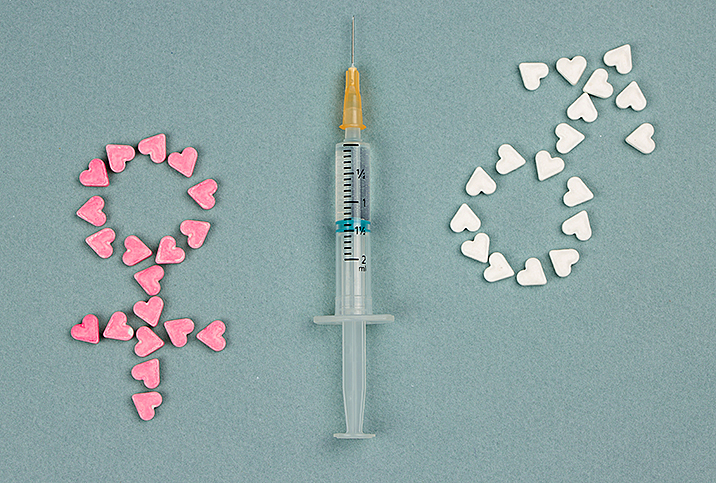Hormone Treatments for Fertility: Myths & Misconceptions

For women using their own eggs during in vitro fertilization (IVF), the beginning of a cycle usually starts with hormone treatments that are used to stimulate the ovaries. This process leads the body to produce multiple eggs rather than the single egg a woman naturally releases each month. This hormone treatment is an important part of IVF, because more eggs provide more chances for successful fertilization.
Unfortunately, myths about hormone fertility treatments scare many couples away from the procedure. We’re going to debunk those misconceptions by looking at what the facts say.
Myth: I can get pregnant at any age with hormone fertility treatments.
Reality: The fact is that even with the hormone therapy involved in IVF, an older woman still may not be able to produce the eggs needed to lead to successful fertilization. It’s no secret that a woman’s reproductive system ages as she does, so even if an older woman is able to produce the eggs needed for IVF, her uterus may be unable to safely carry a fetus to term. For this reason, most IVF clinics have some sort of upper age limit in place, usually within the range of 42 to 45 years old.
Myth: Only infertile couples undergo this treatment.
Reality: You might be surprised to learn that the reasons people undergo IVF extend beyond infertility. One common nonfertility-related reason for IVF is endometriosis. Some women with endometriosis can get pregnant on their own, but if the condition hasn’t responded to treatment, IVF may be the right solution for conception. Cancer is another major reason some people choose IVF. Treatments for cancer—radiation therapy and chemotherapy are two, but there are others—can harm a person’s fertility. Whether cancer treatment causes infertility depends on the individual case. With this uncertainty in mind, some couples opt to get hormone fertility treatment to produce and preserve eggs for the future ahead of cancer treatment.
Myth: Hormone fertility drugs cause cancer.
Reality: No link has been found between these drugs and an increased risk of cancer, though the drugs do carry a risk for side effects, like pretty much every other medication. In fact, medical experts tend to agree that these treatments are relatively safe.
Myth: The hormones used in IVF will drive me insane.
Reality: The hormones involved in IVF will not drive you crazy. Weight gain, cravings or mood swings may arise after hormones are introduced into your body, whether those hormones occur naturally or arrive through a procedure such as IVF. According to medical experts, these synthetic hormones are made to very closely mimic the natural hormones made by your body. For this reason, it’s very unlikely that the hormones will cause symptoms significant enough to negatively impact your mental health in a serious way.
Myth: IVF hormones will make me gain a ton of weight.
Reality: While it’s true that the fertility drugs used during IVF may lead to some weight gain, it’s usually pretty minimal. According to medical experts, this is because IVF might temporarily slow down your metabolism or affect how your body saves and uses energy. Another reason the treatments may cause some weight gain is because the hormones administered may trigger food cravings. Most women gain no more than 5 to 10 pounds during treatments, and some women gain only 1 or 2 pounds, according to the Houston Infertility Journal.


















